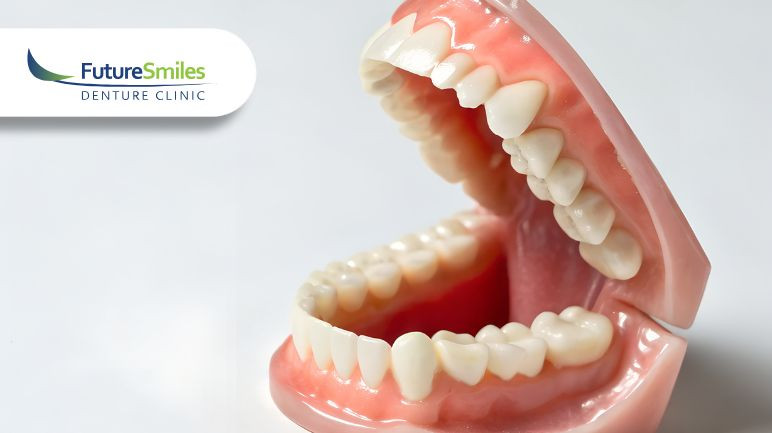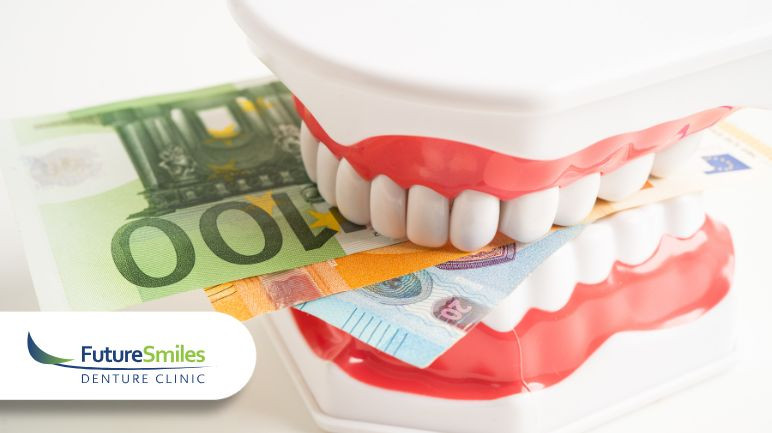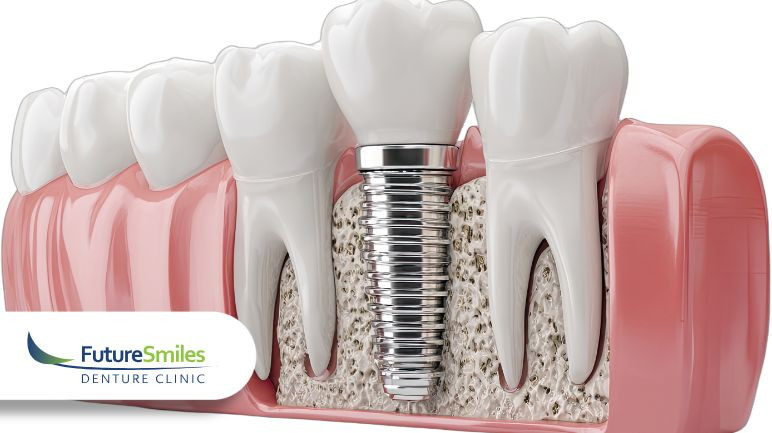Can Dentures Affect My Sense of Taste?
Losing your sense of taste or having food taste bland is a common problem many patients experience in the early weeks or months of wearing full/partial dentures.
While this can be frustrating, there is no reason to worry. Getting your food’s taste back usually just requires some minor adjustments.
Why Do Dentures Affect Taste?
It is important to note that as we age, we tend to lose our sense of taste and some people may even begin having difficulty distinguishing the taste of sweet, salty, sour and bitter foods.
In addition to taste buds getting weaker with age, wearing dentures can result in some flavor loss due to:
- The upper denture covering your upper-hard palate, which contains the taste buds
- Food debris becoming stuck in your dentures and leaving an unpleasant taste
- Overuse of denture adhesive
Losing the sense of taste may only seem like a nuisance, but it can also have some serious health effects. Some people may lose interest in fruits, vegetables & other dishes that provide the nourishment critical to maintaining good health.
If you or a loved one are experiencing difficulty with taste due to dentures, it is important to book an appointment with a local denturist.
They can offer other tooth replacement options, such as dental implants, which may be better suited to your specific requirements.
How to Eliminate Loss of Taste Due to Dentures
If you wear full/partial dentures and are experiencing some difficulty with flavor, there are several ways to regain your sense of taste.
This is important because food that tastes good also encourages you to continue eating healthy, avoiding malnourishment and an over-reliance on bad food choices (such as sweets and salty food.)
Here are three ways in which you can eliminate loss of taste while wearing dentures:
1. Clean your dentures
Keeping your dentures clean is important for many reasons. Brushing and soaking them daily can protect you from oral health problems such as mouth sores, gum inflammation and even cancer.
Rinsing them with warm salt water can also improve your sense of taste by getting rid of any trapped debris or food particles that may be affecting the flavor of your food.
2. Make sure your dentures fit correctly
While it is normal to use some denture adhesive, especially in the first few weeks of wearing dentures, an over-reliance on such products can affect your sense of taste.
If you are using too much adhesive, it may be a sign that your dentures are fitting poorly. Finding a denturist that can offer affordable full/partial dentures that fit well will mean the adhesive will become just a backup, allowing you to enjoy the flavor of your food.
3. Consider denture implants
If you are already cleaning your dentures properly and are not over-using adhesive, it could mean that the taste buds on your upper palate are too shielded.
In such a case, you may want to consider a tooth replacement alternative such as an implant supported denture, which doesn’t require covering your upper palate.
Are you a first time denture wearer?
Here’s how wearing partial dentures may affect your taste & how to resolve the problem.
Wearing full/partial dentures for the first time can be a challenging experience. It may require some time and patience to get used to the new sensation in your mouth.
During the first month of wearing dentures, you may experience several difficulties including:
- Speech difficulties
- Not being able to eat what you want
- Changes in your sense of taste
- Mouth sores and blisters
At Future Smiles, we make every effort to fit your partial dentures or denture implants perfectly & advise you on what to expect so you can get back to enjoying a beautiful, healthy smile as quickly as possible.
Call Today
To find out more about our comprehensive denture solutions from partial dentures to denture implants, contact our Calgary clinic today at 403-475-0016 or book an appointment with our denturist.






